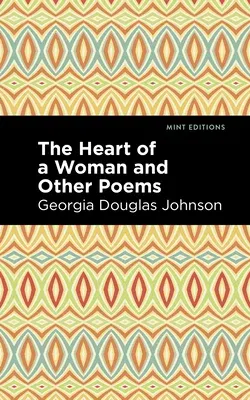The Heart of a Woman and Other Poems (1918) is a collection of poetry
by Georgia Douglas Johnson. Marking Johnson's debut as one of the
leading poets of the Harlem Renaissance, The Heart of a Woman and Other
Poems is an invaluable work of African American literature for scholars
and poetry enthusiasts alike. Comprised of Johnson's earliest works as a
poet, the collection showcases her sense of the musicality of language
while illuminating the experiences of African American women of the
early twentieth century. "The heart of a woman goes forth with the dawn,
/ As a lone bird, soft winging, so restlessly on." Recalling Paul
Laurence Dunbar's classic poem "Sympathy," which immortalizes the
African American experience with the line "I know why the caged bird
sings," the title poem of Johnson's collection compares the heart to a
bird. Musical and dreamlike, Johnson's poem envisions "the heart of a
woman" as it "enters some alien cage in its plight, / And tries to
forget it has dreamed of the stars / While it breaks, breaks, breaks on
the sheltering bars." With each repetition of "breaks," the reader can
feel the restlessness and fear of the bird as it beats its wings against
its cage, the heart as it beats against the "sheltering bars" of the
ribs. In this poem, and throughout the collection, Johnson shows an
efficiency with language uncommon to many poets, let alone one making
her debut. With a beautifully designed cover and professionally typeset
manuscript, this edition of Georgia Douglas Johnson's The Heart of a
Woman and Other Poems is a classic of African American literature
reimagined for modern readers.


